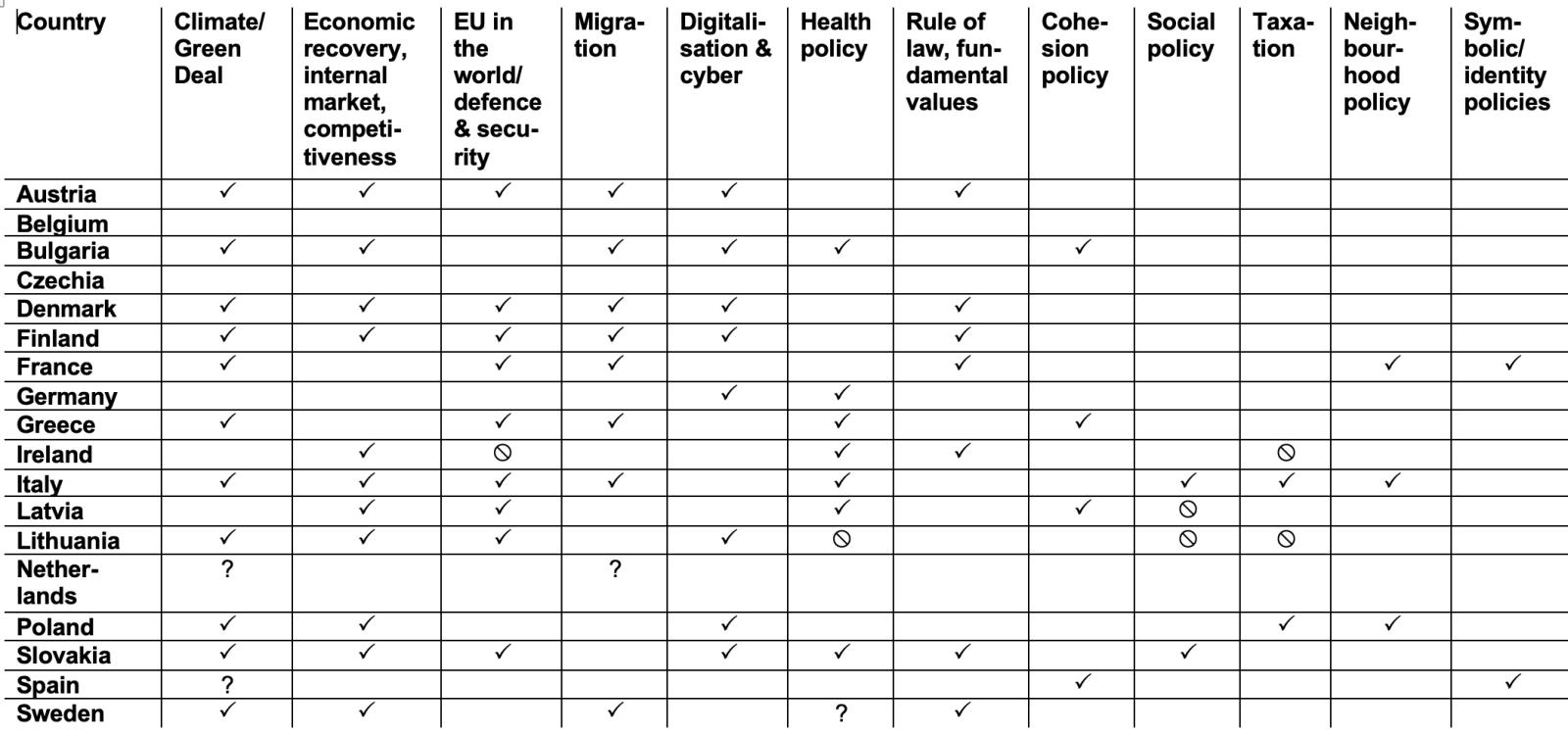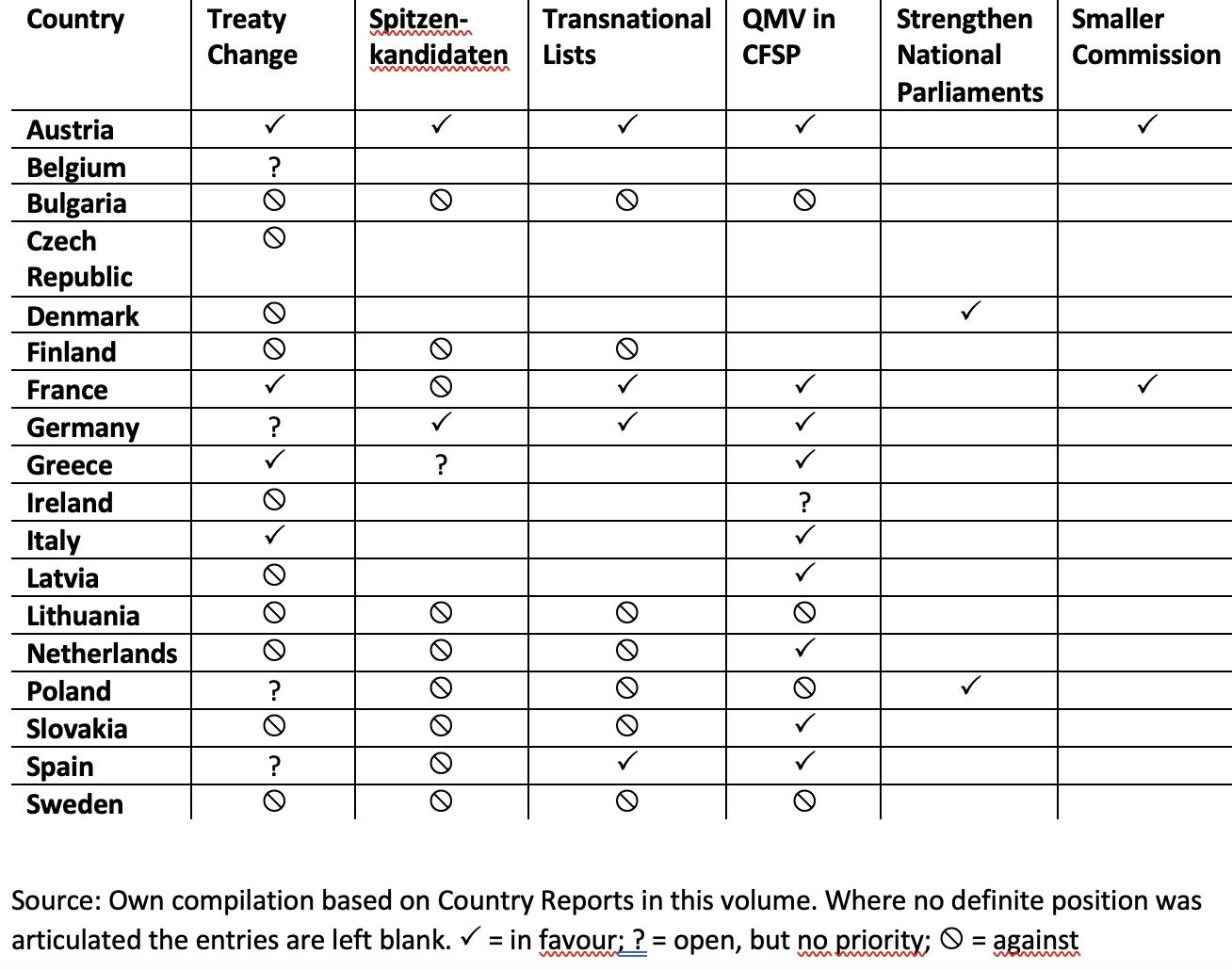Member States' Views - Conference on the Future of Europe
An EPIN report provides a first look at what individual EU Member States want to achieve in the Conference on the Future of Europe, and their expectations of the potential results.


Overview - EU Member States and the Conference on the Future of Europe
The Council is the EU institution with most reservations towards the aim and format of the Conference on the Future of Europe. But this fact has overshadowed that Member States hold a variety of positions on the issues covered by the Conference. This report - Managed Expectations: EU Member States' Views on the Conference on the Future of Europe - takes a first look at what the Member States want to achieve in the Conference, and their expectations of potential results.
The report is based on contributions from The European Policy Institutes Network (EPIN). Think Tank Europa has contributed the chapter on Denmark below.


Denmark: Don’t rock the boat - focus on tangible results for citizens
Denmark is among the member states that were initially very hesitant in their support for the Conference on the future of Europe. In fact, the Danish government’s position has consistently been: “No treaty changes - focus on tangible results.” This is reflected in a non-paper that Denmark signed with 11 other member states in 2020, which underlined the importance of the Conference in promoting “an effective and rule-based EU that delivers real, tangible solutions”, and with a footnote that the Conference should not fall within the scope of article 48 TEU.
The Danish government would like to see the Conference consider proposals for making the EU a global frontrunner on climate, protecting and promoting the rule of law, ensuring a just, green and digital transition of the economy, ensuring an effective, competitive and socially inclusive internal market, managing migration and make the EU a strong and credible global actor. Horizontally, the Conference should also aim to increase the democratic legitimacy of the EU, including through increased transparency of the EU’s legislative work as well as by considering opportunities to strengthen the role of national parliaments in the day - to - day work of the EU.
Since the current Social Democratic government came into power in June 2019, a domestic debate has unfolded on whether this government has taken a more critical position on Europe. The debate sprang from public statements by the prime minister on for instance the EU’s handling of vaccines, the size of the Multiannual Financial Framework and the promise that Denmark’s opt-outs from EU-co-operation on the Euro, defense and Justice and Home Affairs will not be subject to national referenda in the foreseeable future. Hence, appetite for further EU integration is generally limited. The government’s approach to integration is pragmatic: It should be limited, fit with the general political program of the government and remain within the scope of the current Treaties. The EU’s pandemic preparedness could be an area for further integration.
This position is backed up by a recent poll, which showed that a majority of the Danish public would like to see more EU-co-operation in fighting pandemics but simultaneously wishes to keep Denmark’s opt-outs.
The Danish government is expected to announce additional funding for events that form part of the Conference, and although a public plan has not been published yet, the Ministry of Foreign Affairs has launched a social media/media campaign and will be conducting a number of dialogue meetings with NGO’s and citizens in the whole country, as well as joint events with the Danish Parliament and other Member States.
Finally, the Conference of Europe coincides with the 50th anniversary of Denmark’s EU membership, and it is expected that the debate on the future of Europe will be tied to a debate on Denmark’s future role in the EU.


The Think Tank EUROPA does not take collective positions. This publication only represent the views of their individual authors.









